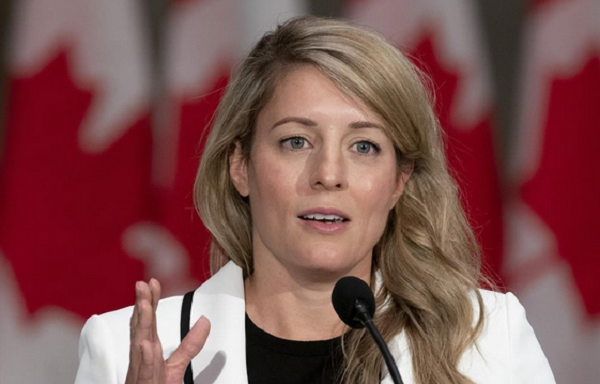Caregivers coming into Canada to be given permanent residence on arrival under new pilot programs
Caregivers coming to Canada to look after children, seniors and disabled people will be offered permanent residency on arrival under two pilot programs to be announced Monday by Immigration Minister Marc Miller.
The pilots, which are enhanced versions of two programs set to expire on June 17, will put qualified nannies, child-care and home-support workers on a fast track to settling in Canada.
Caregivers working for organizations that provide temporary or part-time care for people who are semi-independent or recovering from an injury or illness will also qualify under the new programs, which Immigration, Refugees and Citizenship Canada (IRCC) said will later become permanent.
Canada will admit more than 15,000 caregivers as permanent residents in the next two years, as part of Canada’s overall immigration targets, according to IRCC.
“Caregivers play a critical role in supporting Canadian families, and our programs need to reflect their invaluable contributions,” Mr. Miller said in a statement.
“As we work to implement a permanent caregivers program, these two new pilots will not only improve support for caregivers, but also provide families with the quality care they deserve,” he added.
The current programs – the Home Child Care Provider Pilot and Home Support Worker Pilot – allow qualified caregivers and their family members to come to Canada with the goal of becoming permanent residents. The application process depends on the applicants’ position and the amount of qualifying work experience they have.
The rules require caregivers to pass the English language test at level 5, which is higher than the level required to obtain citizenship. They must also have worked for two years and have the equivalent of one year of postsecondary education.
To qualify for the new enhanced pilot programs, foreign caregivers will need to have an offer for a full-time home-care job, meet the language requirements, hold the equivalent of a Canadian high-school diploma, and have recent and relevant work experience.
“This new pathway means that caregivers can more easily find proper work with reliable employers and have a clear, straightforward access to permanent-resident status as soon as they arrive in Canada,” IRCC said in a statement.
NDP immigration critic Jenny Kwan said there is a shortage of caregivers in Canada while those who come here from abroad to fill jobs are too often exploited and abused. She said their precarious immigration status makes them more vulnerable to poor treatment by employers.
She said Canada should stop classifying caregivers, who help many Canadians, as “low-skill” workers.
In an interview, Ms. Kwan said current language and education standards that caregivers must meet to gain permanent residence – brought in by the Conservatives before Justin Trudeau became Prime Minister – are unnecessarily stringent and have until now acted as a “roadblock” to caregivers settling in Canada.
As of April 30, nearly 5,700 caregivers and their family members have become permanent residents since 2019 under the pilots.
This article was first reported by The Globe and Mail












